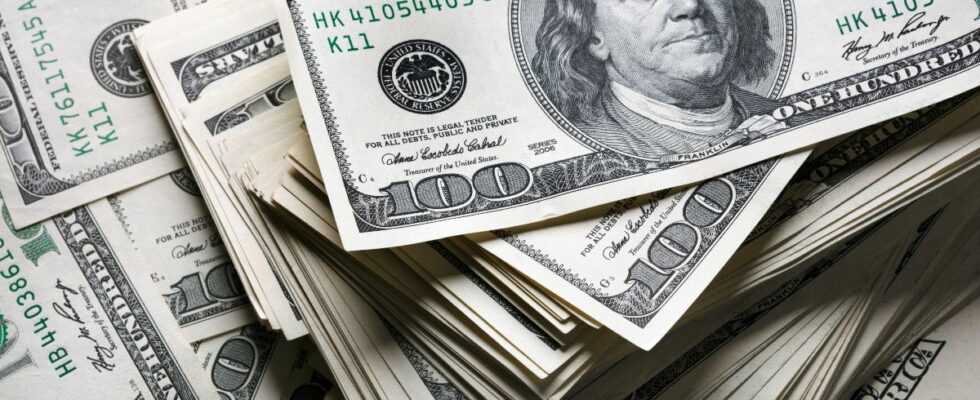4
A bill seeks to order the Secretary of the Treasury to test an electronic version of the US dollar. While its chances of adoption are very low, the initiative demonstrates the willingness of states to deploy alternatives to cryptocurrencies.
© Getty — Pineapple Studio
Maneuvers are multiplying across the Atlantic to prepare the ground for the arrival of a digital currency supported by the US government. In this sense, a bill will be presented to the American Congress. Called ECASH (Electronic Currency and Secure Hardware), this law, carried by Stephen F. Lynch, Democratic Representative of Massachusetts in the United States House of Representatives, aims to order the Secretary of the Treasury to publicly test an electronic version of the American dollar . If the chances of adoption of this bill are very low, it nevertheless demonstrates the willingness of States to deploy alternatives to cryptocurrencies.
If passed, the ECASH Act would require the Secretary of the Treasury, currently Janet Yellen, to set up a program called the Electronic Currency Innovation Program (ECIP). This would oversee a series of pilot programs to test e-cash, legal tender issued by the Treasury Department, which can be used without private intermediaries such as banks or credit card companies. If adopted, the first pilot project should be launched by the Treasury within 90 days, with the aim of deploying this new electronic money to the general public within four years.
Three tests to prove the feasibility of the project
This digital currency would not be blockchain-based like bitcoin. But she will have to offer “key security and functionality safeguards that are typically associated with the use of physical currency, including anonymity, privacy, and minimal data generation from transactions”. Moreover, it is specified that “e-cash must also be interoperable with the existing systems of financial institutions and payment providers, capable of executing peer-to-peer offline transactions and distributed directly to the public via secure hardware devices”. In other words, there is no question for the American State to lose control over this currency, while taking advantage of the ease of use made possible by a digital currency.
To prove the project’s feasibility, the bill says e-cash would require at least three tests within 180 days of the law’s passage. These tests would potentially be conducted with universities or existing financial institutions, which could experiment with different technologies with this electronic money. One test would include using a physical card to store money, while another would aim to allow funds to be stored on a mobile phone or a SIM card. These early tests would be followed by a limited public trial and then a general rollout within 48 months.
The digital dollar project officially launched by Joe Biden
It is important to note that the e-cash that this bill calls for is not intended to become a central bank digital currency (MNBC) and therefore would not replace any potential programs implemented by the Federal Reserve. . The objective is simply to complement and advance the programs launched by the Biden administration in terms of electronic currencies. At the beginning of March, the American president signed an executive order asking federal agencies to take an interest in the development of a central bank digital currency in the United States.
If the US administration is very cautious about the use of cryptocurrencies, it wants to study the impact of a digital dollar on global finance. This reflection should lead to the submission of a report on the “future of money” within six months. “The role of the dollar has been and will continue to be crucial to the stability of the international monetary system as a whole. Foreign central bank digital currencies do not threaten that dominance”the White House said, before clarifying that the development of a central bank digital currency would be a “long process”. Still, the construction of a digital dollar is well and truly launched, while 40 million Americans, or 16% of the country’s population, have already invested in cryptocurrencies.
